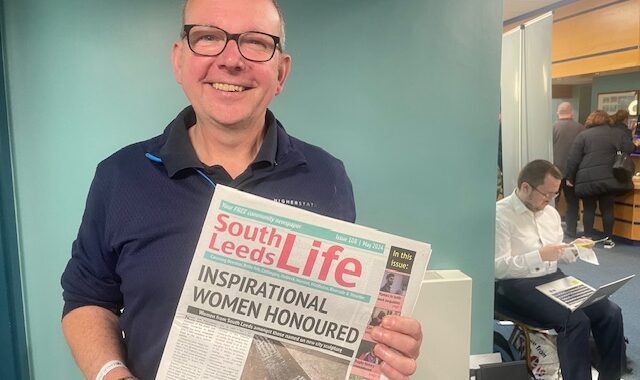
The Centre for Community Journalism has learned that 15 community & hyperlocal news publishers have successfully partnered with the BBC to receive local news content as part of the Local Democracy Reporter Scheme.
The first part of the £8m-per-year scheme, which aims to fund 150 local democracy reporters across the UK, opened in May and publications big and small from all over the UK applied.
The Centre understand that the second part of the Scheme will open later this month (July) and successful partners will be eligible to bid for funding to employ a Local Democracy Reporter.
Editor of the Lincolnite, Daniel Ionescu said: “Stonebow Media (the company that owns the Lincolnite and the Lincolnshire Reporter) has successfully bid for access to section 1 of the BBC’s Local News Partnerships scheme. We are looking forward to section 2 of the process, in what promises to be an exciting project.”
Editor of the Hackney Citizen, Keith Magnum said: “Holding local councils to account is as important as it’s ever been. We hope the BBC Local Democracy Reporter scheme will help us bring an increasing number of in-depth political stories to our readers.”
Co-founder of VIEW Digital, Una Murphy said: “We put our hat in the ring because Brian Pelan and myself, the co-founders of VIEW like the idea of the BBC Local Reporters Democracy Scheme and believe it will help on our journey of independently producing and publishing social affairs journalism by providing original content to highly-professional standards for VIEW ezine and VIEWdigital news site.
We will also be able to share our stories within a wider journalism ecosystem.
“I have worked for the BBC as a journalist and producer in Belfast, Cardiff and Dublin and know the exacting standards the organisation expects and we want to aspire to those professional standards of journalism with VIEW.”
Editor of Wrexham.com, Rob Taylor said: “We have been following the development of the system and processes, with a local test taking place without us knowing.
“I am personally sceptical if essentially state funding to fill a hole created by management at big legacy newspaper groups is the right way forward.
“Locally we have seen a large issue debated in the Guildhall and various other local meetings with no coverage say in Trinity Mirror’s publication sold here. At the same time, they sent a pair of journalists for a full day to document the Coca-Cola truck coming to town. More recently a Primark opening has been live blogged but there was no Trinity Mirror journalist at the first Executive Board meeting of the new Council.
“There is an element of rewarding those who have essentially opted out of covering such meetings, whilst others such as ourselves find the time and resources to do so.
“We are pleased to have been accepted for Phase One of the scheme and look forward to the outputs. I just hope it is not used an excuse to cut staff or coverage elsewhere as the aim of the game surely should be an increase in oversight rather than shifting costs.
“In theory, it should benefit our readers by having a pool report to dip into where we are unable to cover, plus some additional audio/visual outputs.
We are also keen to see how things develop outside of Wrexham with a view to our other publications, existing and planned.
“Hopefully it is deployed and used across the UK as it was intended, with the benefit being to society as a whole, rather than offsetting a cost on a spreadsheet somewhere.”
Editor of West Leeds Dispatch, John Baron said: “Our interest revolved simply around being able to access any content around local council meetings – it seemed too good an opportunity for us to miss.
As a hyperlocal publisher with a day job, we can’t always get to meetings and we thought it’d be a good way of accessing content we might not otherwise have access to.
I’m hopeful the scheme will benefit The Dispatch and other hyperlocals but the proof will ultimately be in the pudding (and editorial decisions on what gets covered will ultimately lie with whoever is managing our local reporter).
It may be that the content isn’t localised or ‘hyperlocal’ enough for us. We’ll see.”
Head of Local News Partnerships, Matthew Barraclough said: “The Local News Partnerships have been drawn up to be as inclusive as possible while at the same time requiring a commitment to high editorial standards. The partnership is open to any qualifying provider and we would encourage small independent news publishers to apply in the next round of approvals.”
Digital Publishing Director of Trinity Mirror Regionals, David Higgerson has previously stated that Trinity is open to discussions with ‘strong’ hyperlocals on the issue of partnering on the scheme.
Trinity Mirror say they welcome discussions with ‘strong’ hyperlocals on the possibility of partnering for contracts. #BBChyperlocalforum
— Community Journalism (@C4CJ) January 9, 2017
Trinity Mirror ‘potentially’ happy to provide HR infrastructure to hyperlocals in areas they do not cover in partnership #BBChyperlocalforum
— Community Journalism (@C4CJ) January 9, 2017
However, Your Thurrock’s attempts at opening these discussions fell on deaf ears.
good point happy to try again?
— davidhiggerson (@davidhiggerson) July 4, 2017




